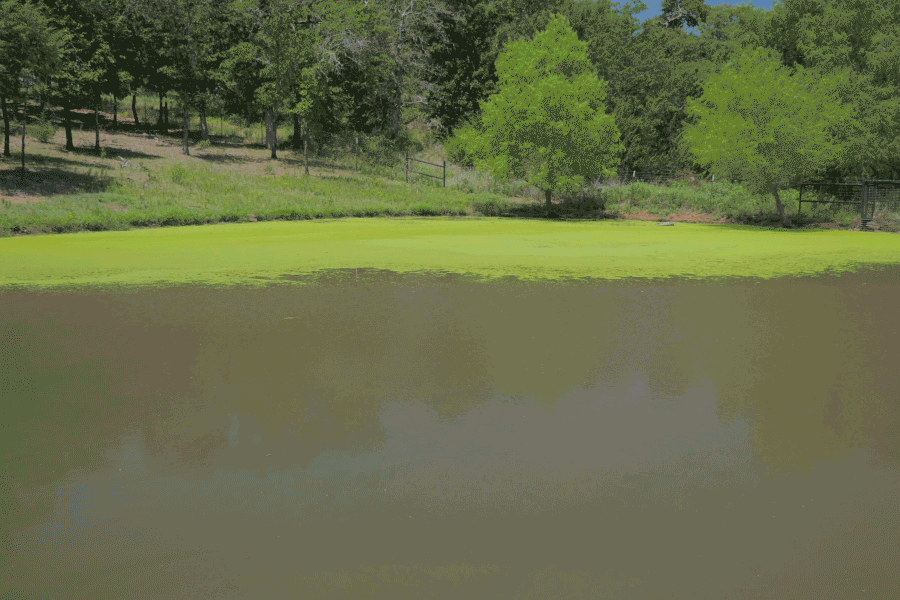One common issue pond owners come across is cloudy water in their ponds. Cloudy water is not aesthetically pleasing, and in some cases can be detrimental to life forms in your pond. When discussing muddiness in a pond, you are generally measuring the turbidity of your pond. So, let’s go over what turbidity is in the first place.
Turbidity is a large number of particles that are not visible to the naked eye. These particles are most commonly small negatively charged particles of clay that are constantly repelling each other. As of result of their negative charge, and inability to clump together, they are not heavy enough to have gravity affect them and bring them to the bottom of the pond. This phenomenon is not to be confused with pond muck. With these particles remaining suspended in your pond, that is the cause of the cloudiness that pond owners want to remedy.
Where do these particles come from?
These particles typically originate from rainfall runoff that will cause clay particles from the soil to be dislodged and become suspended in your pond. Our biologists will use one water sample from your pond as a control and add gypsum to another portion of the sample. Once added, the negatively charged particles will attach to the dissolved gypsum and form a larger grouping and become heavy enough to sink to the bottom of the pond.
Within 24-48 hours our biologist will be able to tell you whether or not gypsum will be the right option for you. In some cases, your pond may be too shallow to remedy this issue but adding these 3 types of plants to your pond may help in the short term.
When should you seek to remedy this problem?
There are two common scenarios that if you find yourself in, you should contact a Pond King Biologist to discuss the options for treatment.
The first is if you have just constructed a new pond, and have grass growing around the pond, and it still is not clearing up. The second scenario is if you have moved on to a property with an existing muddy pond, and it never clears up, you need to go ahead and give a Pond King Biologist a call to see if your problem can be fixed with gypsum. If this cloudiness persists, this turbidity can cause sunlight to not reach areas in your pond and encourage growth.
This lack of sunlight can affect the entire food web in your pond, as sunlight is the foundation for life in your pond.



